Waitress Loses Her Well-Tipping Table After Absolutely Insisting She Needs To Do Her Makeup For 15 Minutes
In this story, the narrator, a server at a restaurant in New Jersey, recounts a moment of karmic justice during a slow season when competition for high-tipping tables was fierce. While the narrator values punctuality and preparation, their coworker, Kayla, frequently arrives just in time to clock in before disappearing to apply makeup on the clock. This habit frustrates colleagues and creates minor disruptions in service, but management turns a blind eye.
One day, Kayla’s procrastination costs her dearly. By shirking her responsibility to take the first table in the rotation, she inadvertently passes on a high-value 14-person party linked to a wealthy local figure, dubbed “Mr. MoneyBags.” The narrator takes the table instead, delivers stellar service, and earns a hefty tip. Meanwhile, Kayla struggles with smaller, less lucrative tables, including one that leaves no tip at all. The narrator revels in the poetic justice, reflecting that preparation outside of work pays off.
Read for more info Reddit
Being late to work isn’t the end of the world, but it can still cause a problem or two. Or more. It depends
One chronically late employee ended up on the receiving end of a problem when they passed up on an opportunity to wait for a well-tipping table
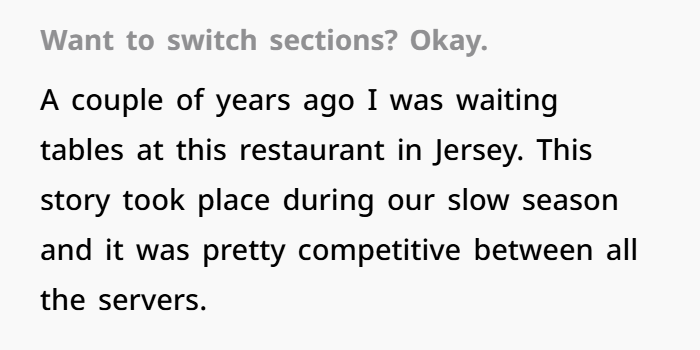
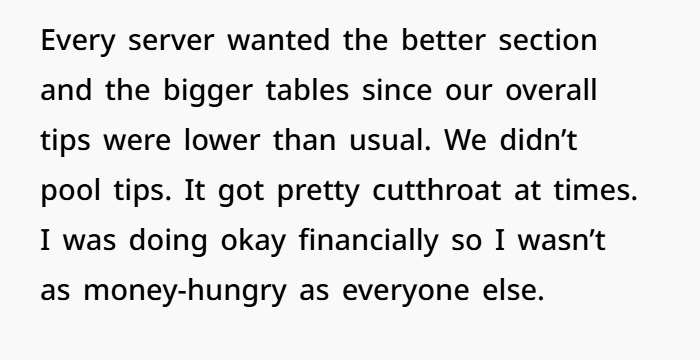
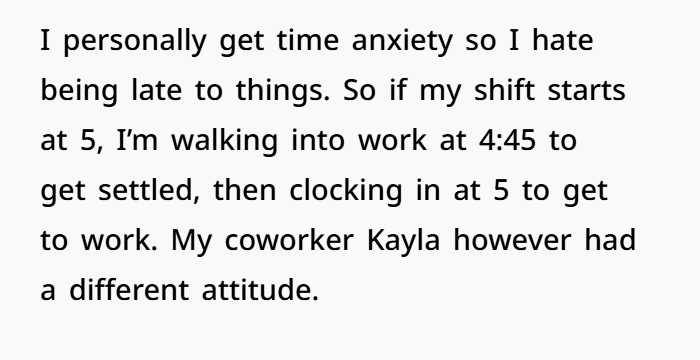
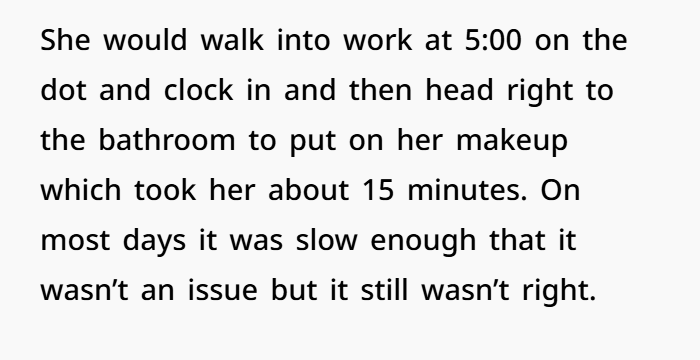
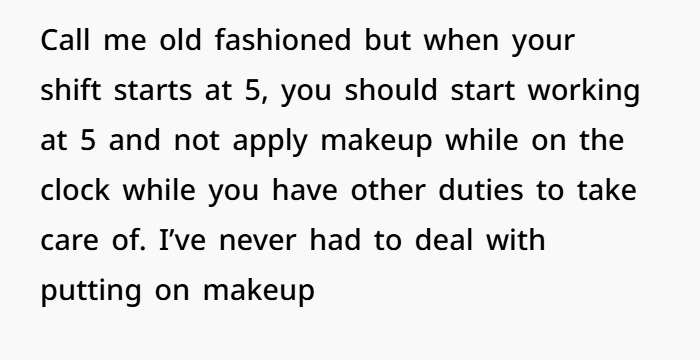
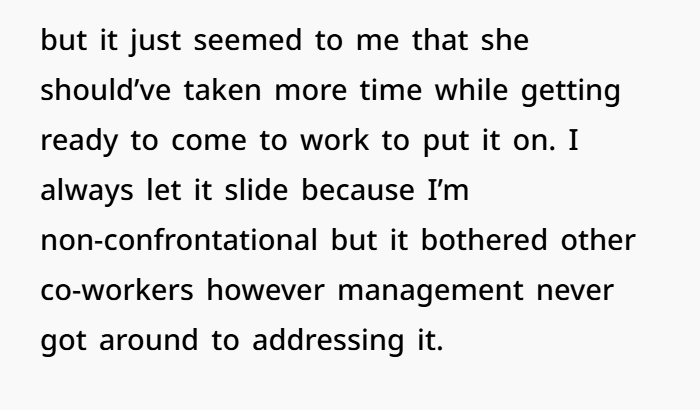
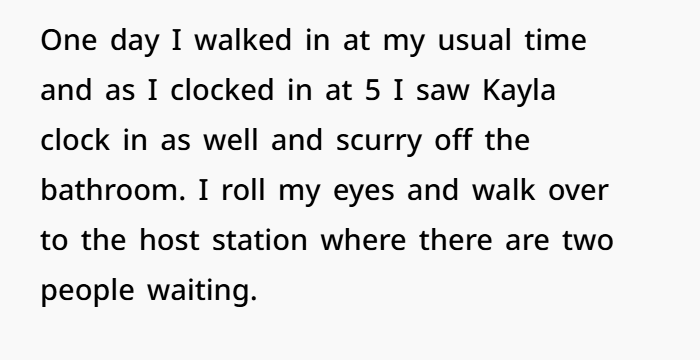
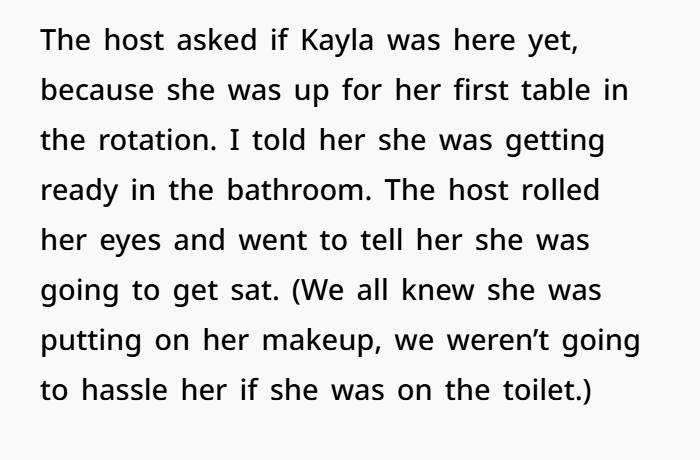
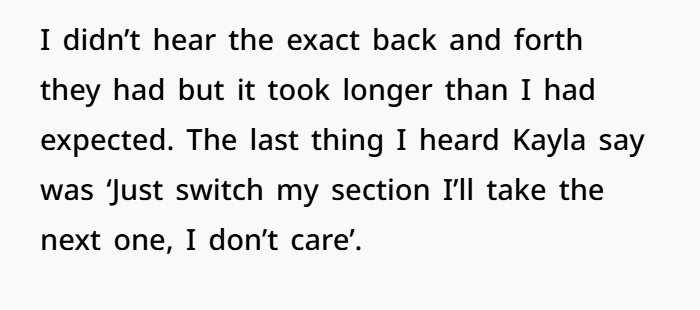
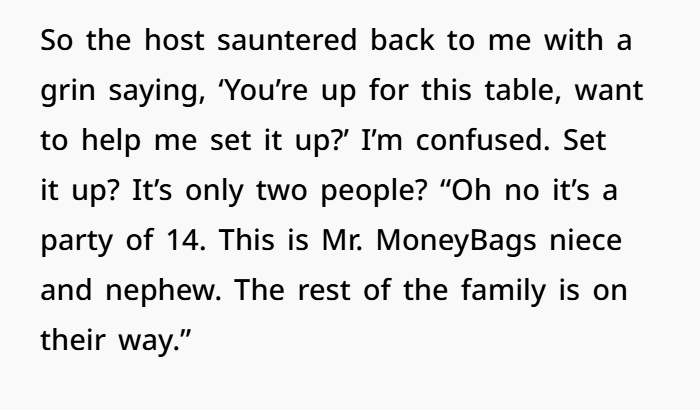

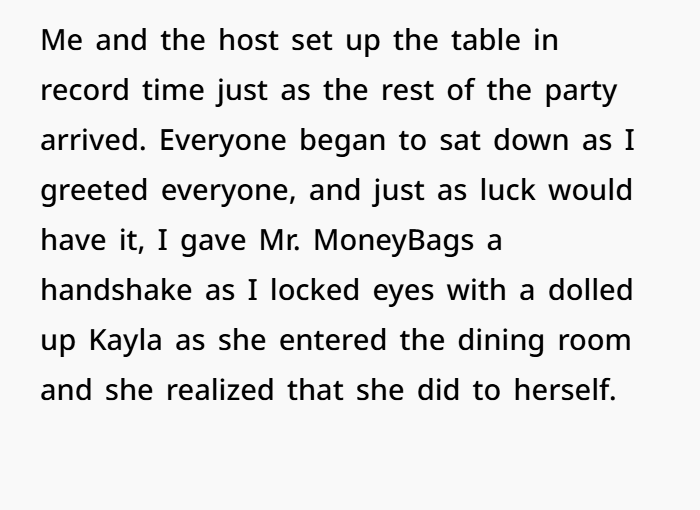
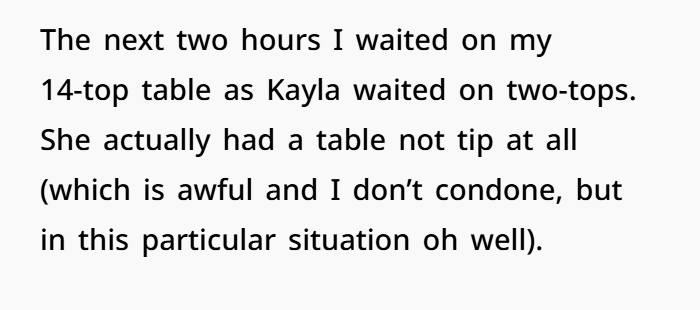
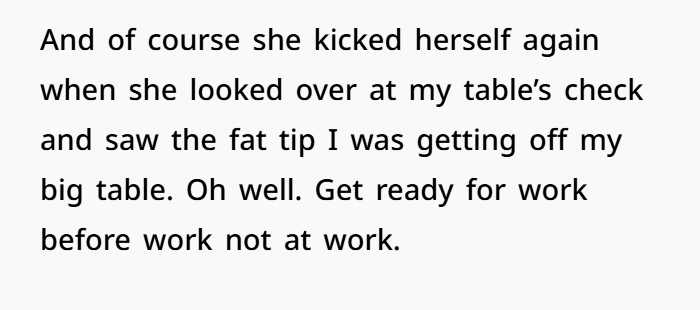
This scenario highlights several workplace dynamics and ethical dilemmas relevant to service industries:
1. Time Management and Professionalism:
- Kayla’s behavior illustrates a lack of respect for workplace norms. While breaks and preparation time are important, her decision to clock in and then spend paid time on personal grooming is an ethical gray area. This goes against the implicit contract between employee and employer that work hours should be productive.
- Employers could mitigate such issues by setting clear policies on preparation before clocking in. Some industries enforce stricter rules, such as requiring employees to be ready to work the moment they clock in.
2. Tip-Based Earnings and Competition:
- In restaurants where servers don’t pool tips, competition for high-value tables can strain coworker relationships. Research shows that environments fostering such competition may reduce team cohesion and lead to animosity, as seen here with the narrator’s subtle satisfaction at Kayla’s downfall.
- Conversely, pooled tipping systems, while controversial, can reduce these tensions by encouraging teamwork. However, they might also demotivate high-performing servers who feel penalized for their hard work.
3. Karma and Workplace Justice:
- The story serves as a cautionary tale about the consequences of shirking responsibilities. Kayla’s avoidance of her duties inadvertently handed the narrator a lucrative opportunity. Such instances reflect broader workplace principles where consistent professionalism and preparation often yield long-term benefits.
Case Study: Bell v. Farris Group
- In 2016, a court case involving restaurant servers highlighted how disputes over work policies (including tipping and break times) can lead to legal consequences. Employees argued that management’s failure to enforce clear rules created unfair working conditions. This echoes the narrator’s frustration at management’s inaction regarding Kayla’s behavior.
And she actually made another mistake—she checked the tip afterwards, only to be greeted with another oof moment

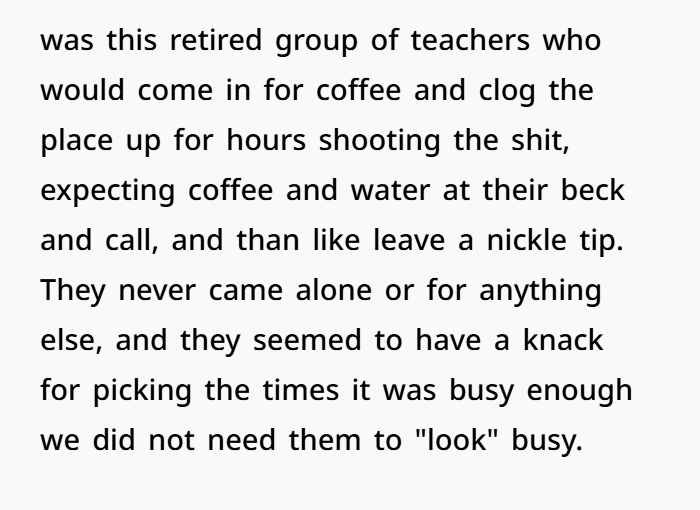
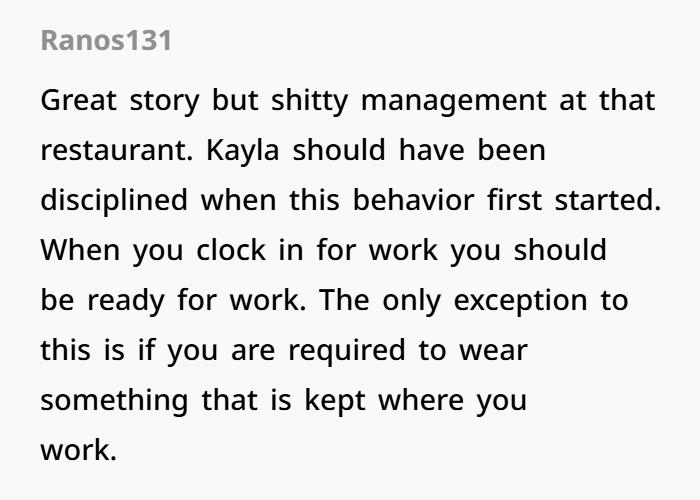

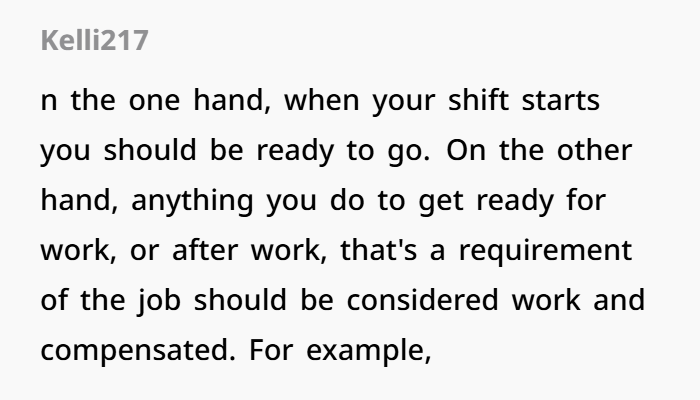
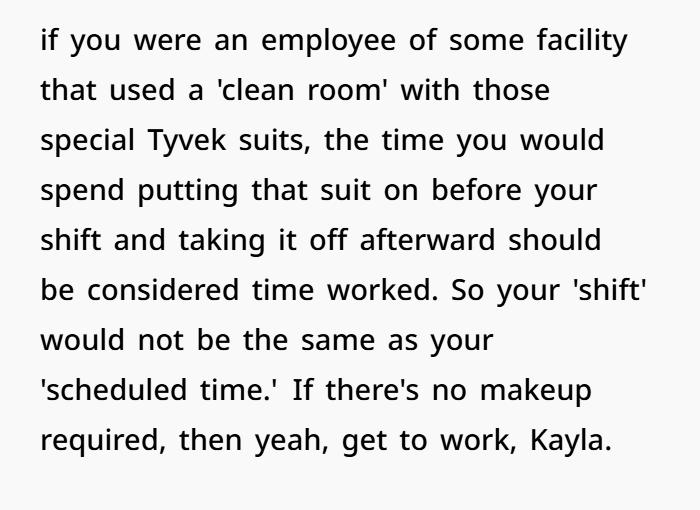
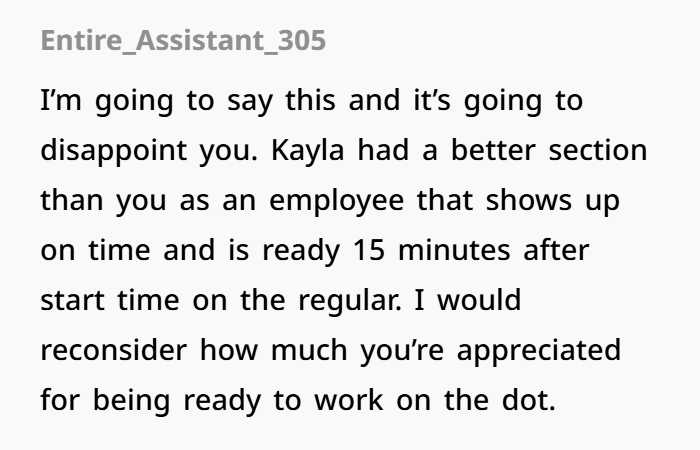
This story combines humor and schadenfreude with an underlying message about the value of punctuality and professionalism. While Kayla’s actions brought immediate relief from responsibility, they also exemplify how cutting corners can backfire. In contrast, the narrator’s dedication paid off—literally. The moral? Success often favors the prepared.




